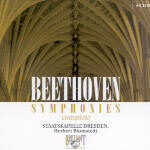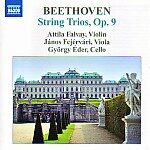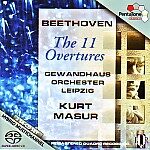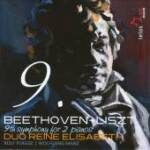

I don’t mind a touch of perversity in this music, and “touch” is basically how Lazic achieves his perversity: his technique is amazing, and quite

On first acquaintance, a listener familiar only with the “popular” Beethoven symphonies would hardly recognize Symphony No. 1 as a work by the same composer

The reference recordings listed above give a good sense of the range of interpretation in this music on modern instruments, from period-influenced (Vänskä) to German

Herbert Blomstedt’s Beethoven cycle with the Staatskapelle Dresden is one of the great ones, as much for the magnificent playing of this finest of all

This set offers a wonderfully apt summation of the art of one of the most inquisitive, intelligent, talented, and unflaggingly musical conductors of the 20th

Beethoven’s string trios stand among his earliest masterpieces, fully the equal of his early quartets. They are the greatest works in their medium after Mozart’s

Liza Ferschtman plays this music beautifully, with an amazingly pure tone, thoughtful phrasing, and the kind of serenity that doesn’t preclude energy that the music

Return with me, if you will, to those halcyon days when men were men and communists were taken seriously. Back in the 1970s, Germany had

Walter Gieseking’s commercial studio recordings of Beethoven’s G major and Schumann’s A minor concertos only hint at the energy and brio that these Cologne broadcast

The newest entry in the small but growing Beethoven/Liszt Two-Piano Ninth Symphony catalog offers salient attractions, if not complete satisfaction. The Duo Reine Elisabeth brings
![]()
